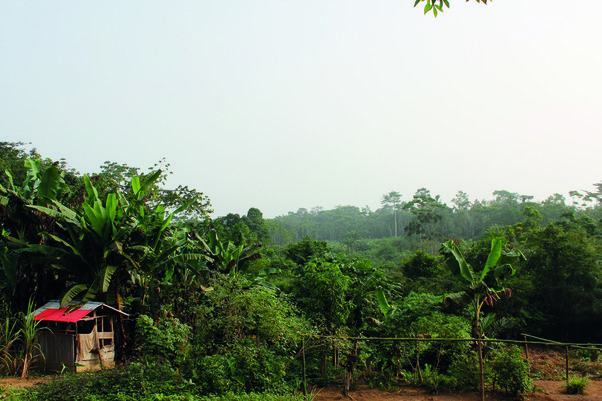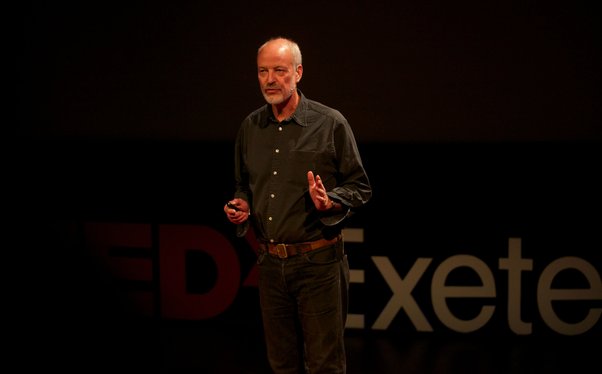Sherpa, Global Witness, Greenpeace France and Liberian NGO Green Advocates have today filed a legal complaint before the Senior Magistrate of the Regional Court of Montpellier against the French arm of Danish timber giant Dalhoff, Larsen and Horneman (DLH).
The groups allege that during the civil war in Liberia from 2000-2003, DLH bought illegal timber from Liberian companies that provided support to Charles Taylor's brutal regime.
The action comes as DLH is trying to sell its business, against a backdrop of mounting pressure and official complaints over its illegal and criminal activities worldwide.
A lucrative illegal trade
According to the claimants, by doing business with corrupt Liberian logging companies operating illegal concessions, the French arm of DLH is guilty of the crime of ‘recel’ – the handling of and profiting from goods obtained illegally.
"DLH’s suppliers spent the war years illegally stripping away Liberia’s natural resource wealth, and in the process funding one of recent history’s nastiest regimes. DLH knew where the timber was coming from, and who was benefiting from the sales, and yet it carried on regardless," said Patrick Alley, Director of Global Witness.
“It hasn’t changed, either; as recently as 2012 it was trading in illegal timber from Liberia. This legacy will hang over DLH until justice is done, making it a toxic investment for anyone looking to buy the business in France, Denmark or elsewhere.”
Ensuring respect for timber regulations is essential
This legal complaint adds to a catalogue of illegalities associated with DLH and its French subsidiary. Global Witness submitted a complaint in February 2014 to timber certification body, the Forest Stewardship Council (FSC), related to DLH’s recent trading in illegal timber from Liberia.
If sanctioned, DLH risks losing its commercially valuable FSC certificates. Under FSC rules, companies may not be involved in illegal logging, human rights violations, or the destruction of valuable forests.
“DLH trades heavily on its sustainability credentials in public, while siphoning valuable resources from one of the poorest countries in the world,” said Patrick Alley of Global Witness. “Charles Taylor has been brought to justice in the Hague for what he did in Liberia - it’s about time DLH is held to account for its role and pays back what it has stolen to the Liberian people.”
Any further imports of illegal timber into Europe by DLH would make the company liable to criminal sanctions under the EU’s new Timber Regulations, which came into force on 3 March 2013. The new laws ban any company from placing illegal timber on the European market and require companies importing timber into the region to carry out thorough checks to ensure the timber was logged according to the producer country’s laws.
“France has still not implemented the necessary sanctions to implement the EU Timber Regulations (EUTR)” said Jerôme Frignet, Forest Campaigner at Greenpeace France. “The draft law, currently before the French Parliament, fails to meet the requirements established by the EUTR. If adopted in its current form, this will give rise to an absurd situation in which an offending company will pay a penalty, but continue to profit from the offence through the sale of the illegal timber or wood product”.
Sophia Lakhdar, Director of Sherpa, concludes: “The calling of a public inquiry by the Senior Examining Magistrate of Montpellier would show that France is ready to condemn in the strongest terms the impunity of some economic actors. Furthermore, in accordance with the draft law on due diligence between parent and subsidiary companies and initiated in November 2013 by three French deputies, there is to be severe pressure on economic practices that infringe fundamental rights”.
Notes to editors:
- For further information on DLH’s purchases of conflict timber, see Global Witness’ report Bankrolling Brutality: Why European timber company DLH should be held to account for profiting from Liberian conflict timber, 2010.
- In November 2009, the groups made a first legal complaint regarding DLH’s wartime illegal timber trading to the public prosecutor of Montpellier. The prosecutor’s dismissal of the case as requiring “no further action”, on 15 February 2013, shows once again the difficulties of fighting against the impunity of corporate actors for human rights abuses abroad. Given the reluctance of public prosecutors to pursue corporate actors, the NGOs have been obliged to submit the complaint directly to the Senior Magistrate of the Regional Court of Montpellier as a civil party, in order to ensure that justice is done in this case.
- The FSC complaint details how in 2012 DLH imported illegal timber worth $304,870 from Liberia to France, China and Bangladesh. The timber was cut under logging contracts called Private Use Permits (PUPs), which have been declared illegal by the Liberian government. A 2012 investigation into their use reported widespread fraud and corruption by companies and Liberian officials, and this week saw the criminal indictment of eight ex-government officials for facilitating the scandal. Before DLH’s imports of the timber, the UN Panel of Experts had stated in 2011 that timber from PUPs could be used to finance conflict, and threatened Liberia’s fragile sustainability and anti-corruption efforts. Global Witness’ official complaint to the Forest Stewardship Council can be found at http://www.globalwitness.org.
- For further information on the draft French law currently before Parliament, see Greenpeace’s briefing : « La France, Porte d’entrée du bois illégal en Europe », January 2014.


